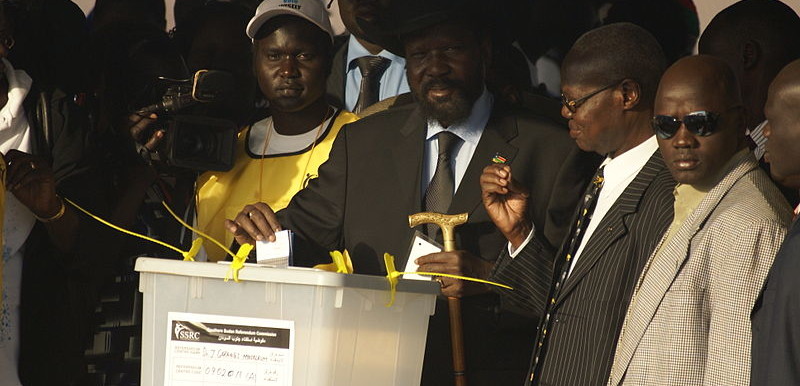The author argues that the move to hold elections is in complete violation of the country’s laws. He says elections should be postponed until peace is restored to South Sudan.
Pericles once said, “We alone regard a man who takes no interest in public affairs, not as harmless, but as a useless character.” That is why I feel compelled to speak out on the question of elections, which are scheduled to take place this year.
Of course, the Electoral Commission and President Salva Kiir’s administration repeatedly say they are acting in accordance with the Republic of South Sudan’s Transitional Constitution in planning the event. But the SPLM has a long history of violating this document.
- The SPLM violated the Transitional Constitution by removing elected people from office without explanation, including Paul Malong, the former governor of Northern Bahr-el Ghazal.
- The SPLM trained and armed a private army in violation of the transitional constitution’s Article 151 (3), which says, “No person or persons shall raise any armed or paramilitary force in South Sudan, except in accordance with this constitution and the law.”
- The SPLM party on December 15, 2013, decided to fight itself and then allegedly started massacring innocent South Sudanese people.
The SPLM has shown it is only capable of killing and destruction, instead of focusing on their core responsibilities that they outlined in their own transitional document: maintaining peace and security; reconstruction and development; promotion of good governance and welfare of the people; and ensuring the protection of the rights and interests of the people.
Over the past three years, the SPLM-led government has barely touched any of these fundamental duties. There is no reason to expect the move to hold elections is any different.
First of all, the organization of general elections before a peace agreement is reached and upheld is totally wrong. It is an idea that no true South Sudanese should buy. The SPLM government, instead, should focus on restoring peace.
Yes, this will be difficult. There are people in the kingdom of kleptomania who look at national institutions as theirs. This problem is the source of our country’s destruction. But let them bring peace first and then we turn to elections. Even if the current term expires, there is already another plan in place: elections to be held 30 months after a transitional government is instituted.
The process of moving forward with the national elections has been strange. First government spokesperson Michael Makuei Lueth said they were pursuing avenues to have an election. Shortly thereafter, the Electoral Commission Chairperson Abendego Akok announced the commencement of the election process. Can these two institutions really be working independently, as claimed?
And if these two bodies say they are working in accordance with the South Sudan Transitional Constitution, someone needs to double check to make sure that’s true. If they are, according to the document, they should have a permanent constitution in place and they should have conducted a national census that would determine the number of electoral constituencies. Only then should they have elections. Neither of these steps has been taken.
If these procedures are not followed as constitutionally stipulated, then upcoming elections are not being organized in accordance with South Sudan’s current transitional constitution.
Kiir’s administration and the South Sudan Electoral Commission need to listen to both national and international Good Samaritans. People want to exercise their democratic rights. But until peace returns, there are hundreds of thousands of people who cannot because of the dreadful suffering they currently endure.
So, immediately, suspend all these divisive and calamitous programs until peace is agreed in Addis Ababa.
The author, Bol Khan, is a human rights and peace activist. He can be reached at bolkhan39@yahoo.com.
The views expressed in ‘opinion’ articles published by Radio Tamazuj are solely those of the writer. The veracity of any claims made are the responsibility of the author, not Radio Tamazuj.




